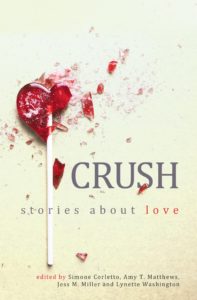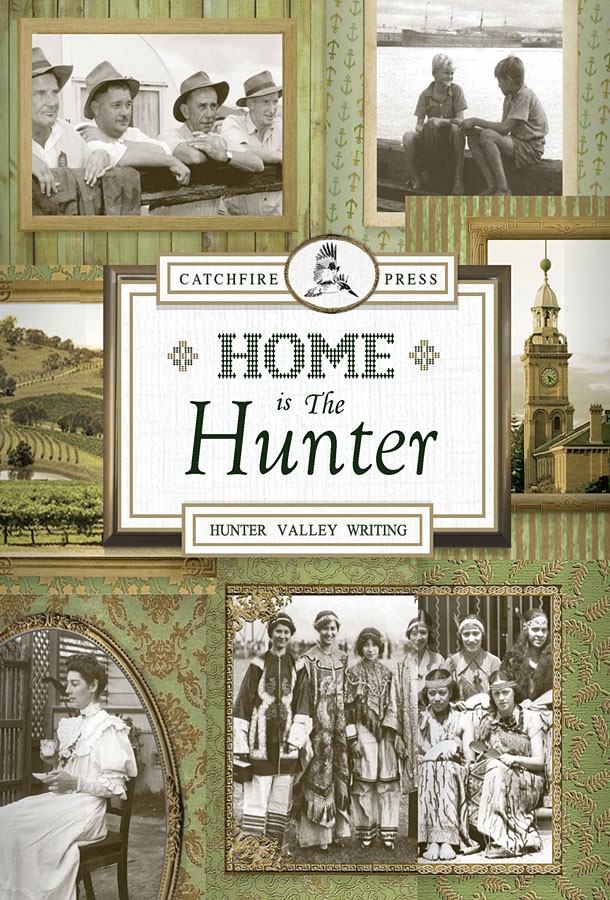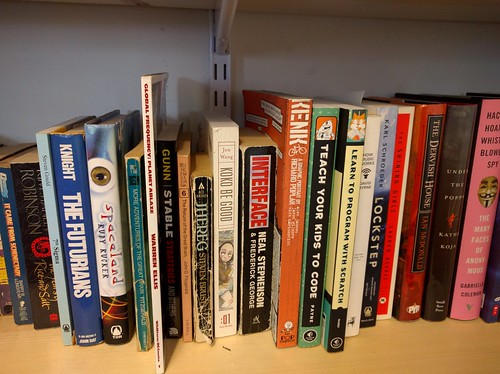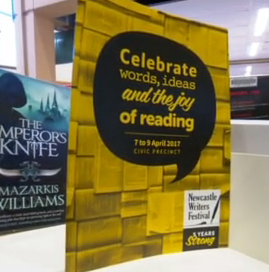The Compulsive Reader Newsletter for December has now been fully distributed. We’ve got 10 new reviews including Lynette Washington’s criticalAppalachian Fall by Jennifer Maidenly acclaimed Plane Tree Drive, 81 Migrations by W.K. Buckley, a piece on on Faber’s Sarah Menary, an interview with Lex Hirst, a great new giveaway for Appalachian Fall by Jennifer Maiden.
If for some reason you didn’t get one, just grab a copy here: http://www.compulsivereader.com/send/622615158db1e1d/
If you’d like to subscribe, visit: http://www.compulsivereader.com
Tuesday, December 5, 2017
Tuesday, November 7, 2017
Frank O’Hara’s Personal Poem
Following is my third ModPo, essay, written on Frank O’Hara’s “Personal Poem” from his 1964 book Lunch Poems. The full text of the poem, which is rather wonderful, can be found here: https://www.poets.org/poetsorg/poem/personal-poem
Frank O’Hara’s New York City is an absolute realm, an “urban world of fantasy” as Ashbery wrote in his introduction to O’Hara’s Collected Poems. Though “Personal Poem” seems spontaneous, the verisimilitude is constructed, pulling the reader into an imaginary present that feels real. There is serendipity here, as if the present tense could be continually refreshed through the artful innocence of the storyteller’s narrative. The poem’s title references O’Hara’s literary genre “Personism”, which imagines a conversation between two people, with an identifiable “I do this I do that” structure to mirror physical progression. The speaker invites the reader to walk with him during lunchtime in midtown Manhattan around 53rd Street, as referenced by The House of Seagrams. The “luminous humidity” evokes summer. Google Maps couldn’t give us a clearer sense of this world as we walk past buildings under construction and into Moriarty’s where the speaker is meeting LeRoi Jones (later Amiri Baraka) for lunch. The city is vividly evoked through action rather than imagery: “I get to Moriarty's”, “I shake hands with LeRoi…and go back to work”.
Despite O’Hara’s claims that Personism doesn’t use literary techniques, many are at work here. The ‘names’ O’Hara drops through the poem are carefully chosen. The abstract expressionist painter Mike Kanemitsu’s coin becomes a charm for the poem, functioning as synecdoche for the abstract expressionist artworld that anchors the speaker “in New York against coercion” (coupled with a broken travel bag). The silver construction hats also function as synecdoche, representing a working life that the speaker is both part of and free from as a successful poet in New York: “we don’t want to be in the poets’ walk in/San Francisco even we just want to be rich/and walk on girders in our silver hats”.
The meeting with the poet LeRoi Jones (later Amiri Baraka) is pivotal. Just stating the name LeRoi brings in an activist energy that speaks of Jazz and black rights, further enhanced by the reference to the clubbing of Miles Davis. Though the two meet in friendship and a literary congruence that feels luxurious, there is also a reminder here of O’Hara’s privilege and the sad political reality that separates the friends. O’Hara doesn’t have to fear clubbing by cops, while Baraka, like Davis, was beaten by cops a few years after this poem was published.
The rhythm creates a circular narrative designed to feel colloquial, with a carefully constructed rolling pace through the inclusion of only two pauses – one stanza break (a red light crossing pause?), and a single comma in the second stanza.There is no other punctuation. The poem starts with “Now” and ends with “so”, a circular progression that loops back to the start, the action ending abruptly but not conclusively.The minimal punctuation combines with enjambment (“never brought me/much luck”) to create a breathless sense of fast walking, with lots of conjunctions (and, but, and so) to keep the poem in motion as it swirls past a constructed city, the politics of race and class, while touching on the nature of fame, death and immortality, working naturally from the personal to the universal in a way that feels like a recount but also reminds the reader, metapoetically, that they are the one person in eight million thinking of O'Hara.
Frank O’Hara’s New York City is an absolute realm, an “urban world of fantasy” as Ashbery wrote in his introduction to O’Hara’s Collected Poems. Though “Personal Poem” seems spontaneous, the verisimilitude is constructed, pulling the reader into an imaginary present that feels real. There is serendipity here, as if the present tense could be continually refreshed through the artful innocence of the storyteller’s narrative. The poem’s title references O’Hara’s literary genre “Personism”, which imagines a conversation between two people, with an identifiable “I do this I do that” structure to mirror physical progression. The speaker invites the reader to walk with him during lunchtime in midtown Manhattan around 53rd Street, as referenced by The House of Seagrams. The “luminous humidity” evokes summer. Google Maps couldn’t give us a clearer sense of this world as we walk past buildings under construction and into Moriarty’s where the speaker is meeting LeRoi Jones (later Amiri Baraka) for lunch. The city is vividly evoked through action rather than imagery: “I get to Moriarty's”, “I shake hands with LeRoi…and go back to work”.
Despite O’Hara’s claims that Personism doesn’t use literary techniques, many are at work here. The ‘names’ O’Hara drops through the poem are carefully chosen. The abstract expressionist painter Mike Kanemitsu’s coin becomes a charm for the poem, functioning as synecdoche for the abstract expressionist artworld that anchors the speaker “in New York against coercion” (coupled with a broken travel bag). The silver construction hats also function as synecdoche, representing a working life that the speaker is both part of and free from as a successful poet in New York: “we don’t want to be in the poets’ walk in/San Francisco even we just want to be rich/and walk on girders in our silver hats”.
The meeting with the poet LeRoi Jones (later Amiri Baraka) is pivotal. Just stating the name LeRoi brings in an activist energy that speaks of Jazz and black rights, further enhanced by the reference to the clubbing of Miles Davis. Though the two meet in friendship and a literary congruence that feels luxurious, there is also a reminder here of O’Hara’s privilege and the sad political reality that separates the friends. O’Hara doesn’t have to fear clubbing by cops, while Baraka, like Davis, was beaten by cops a few years after this poem was published.
The rhythm creates a circular narrative designed to feel colloquial, with a carefully constructed rolling pace through the inclusion of only two pauses – one stanza break (a red light crossing pause?), and a single comma in the second stanza.There is no other punctuation. The poem starts with “Now” and ends with “so”, a circular progression that loops back to the start, the action ending abruptly but not conclusively.The minimal punctuation combines with enjambment (“never brought me/much luck”) to create a breathless sense of fast walking, with lots of conjunctions (and, but, and so) to keep the poem in motion as it swirls past a constructed city, the politics of race and class, while touching on the nature of fame, death and immortality, working naturally from the personal to the universal in a way that feels like a recount but also reminds the reader, metapoetically, that they are the one person in eight million thinking of O'Hara.
Labels:
frankohara,
poetry
Thursday, November 2, 2017
CR News is out for November
Hello readers, I’m pleased to report that all issues of Compulsive Reader newsletter have been marked as “delivered”. You should have your copy now. If for some reason it got trapped in spamville, you can grab a copy in the archive here: Compulsive Reader News

This month we’ve got 10 great new books featured including Shriek by Davide A. Cotton, Broken Branches by M Jonathan Lee, The Last Days of Jeanne D’Arc by Ali Alizadeh, Nevermoor by Jessica Townsend (and check out my interview with Jessica at Compulsive Reader Talks), interviews with Jane Owen, Monica Jephcott Thomas, Daniel Findlay, Pip Harry, and lots more, plus a roundup of the literary news, another great giveaway and plenty more. If you aren’t a subscriber, go now to http://www.compulsivereader.com and sign up for free (upper right hand corner).

This month we’ve got 10 great new books featured including Shriek by Davide A. Cotton, Broken Branches by M Jonathan Lee, The Last Days of Jeanne D’Arc by Ali Alizadeh, Nevermoor by Jessica Townsend (and check out my interview with Jessica at Compulsive Reader Talks), interviews with Jane Owen, Monica Jephcott Thomas, Daniel Findlay, Pip Harry, and lots more, plus a roundup of the literary news, another great giveaway and plenty more. If you aren’t a subscriber, go now to http://www.compulsivereader.com and sign up for free (upper right hand corner).
Labels:
authors,
books,
interviews,
reviews
Tuesday, October 10, 2017
The single space of the present moment (Nantucket is for lovers)
Here’s another essay from ModPo, this time on William Carlos Williams’ “Nantucket” - because I don’t post poetry essays here nearly enough.
The poem can be read in its entirety here: https://www.poemhunter.com/poem/nantucket/
The poem can be read in its entirety here: https://www.poemhunter.com/poem/nantucket/
The most striking aspect of William Carlos Williams’ poem “Nantucket” is the lack of a poetic speaker. The poem is written entirely in present tense and moves like a camera across a fixed, silent tableau. We have a lyrical description of a room: flowers against the curtains, with sun shining in. There is no sign of human habitation but we know, by the readiness, the pitcher and tumbler, and the tidy presentation, that the room has been set up. We know it is late afternoon, and that the room is unoccupied (“immaculate”), private (the phallic, prone “key”) and that occupation is imminent. The images are crisp, richly coloured, concrete and very visual, with a strong sensuality conveyed by scent (“Smell of cleanliness”), sight (lavender, yellow, white), and feel (sunshine). This is a poem that presents a classic example of Imagism. There is no sentiment expressed. Williams’ language is economic and clear, focusing only on this single space of the present moment: a self-contained room. Most of the scene is set using nouns: flowers, curtains, sunshine, a glass of water, a key, a bed.
In spite of the pristine nature of the poem’s imagery and the lack of a narrative, there is a dynamic quality to the work. A judicious use of transitive verbs: “changed”, “turned down”, “lying”, charge the nouns with a strong sensual quality, as if these items were readying themselves for something to follow, and contained by the clear space of the room with its obvious borders. There is a strong sense of distinction between the self-contained world inside the room (white on white), and outside of the room (colour on colour). Additional motion is conveyed by the use prepositional phrases like “through the”, “changed by”, “on the”, “by which” and “is lying” which give the nouns a sense of agency and connection, so that each one’s placement is part of the meaning of the other and exists only in conjunction with its precedent.
The poem has a very consistent structure and rhythm, which also provides a motion that contrasts strongly with the static nature of the imagery. The five two line stanzas don’t rhyme but have a very regular syllabic pattern of 6/6, 6/5, 7/4, 7/4, 7/6, heighted by the way the syllables are accented, swapping between iambic and trochaic rhythm which also creates a kind of motion - like a dance between alternating stresses. You don’t need to read these stresses with overt iambic and trochaic patters, but the ghost of that rhythm keeps the work light and bouncy. Enjambment, particularly in the second half of the poem, and dashes are both used to introduce a sense of emotive progression as the reader’s eye moves down the page from the window to the bed, preceded by the dash and capitalised preposition “And the”, as if the bed were our destination, and the slow progression from window to bed was one of desire and consummation.
Labels:
#poetrymonday,
poetry
Monday, October 2, 2017
Compulsive Reader Newsletter out for Oct
Hello readers. Our October newsletter has now gone out with the usual bevy of brand new reviews and interviews, a fantastic new giveaway, the full round-up of literary news, and lots more delivered free to your in-box. If you haven’t received it yet, you can grab a copy here:
Compulsive Reader Archive
If you haven’t subscribed, just toddle over to http://www.compulsivereader.com and sign up.
photo credit: marksmorton Biblio via photopin (license)
Compulsive Reader Archive
If you haven’t subscribed, just toddle over to http://www.compulsivereader.com and sign up.
photo credit: marksmorton Biblio via photopin (license)
Labels:
book reviews,
giveaway,
newsletter
Tuesday, September 26, 2017
Emily again: Love reckons by itself — alone
If you’ve been following this blog, you’ll know about my annual affair with UPenn’s Modern and Contemporary American Poetry course (“ModPo”) taught by the great Al Filreis. I’m on my sixth year. This is no impersonal MOOC, though I share the course with some 30,000+ students, most of whom will return every year to re-engage with old and new poems, as the course is constantly changing, growing, and offering new ways to interact with both classic and very recent poetry and poets. The course runs for 10 weeks but remains open throughout the year with discussion groups, ongoing interpretations, regular ongoing meet ups and crowdsourced close readings, teacher and student resources and constantly good conversation. The course always begins with Emily Dickinson and Walt Whitman, effectively the mother and father of modernism - both representing separate stylistic poles that link and underpin all of the work that follows. Nothing is mandatory, but I like to do the essays each year, especially as they’re always a little different. And if you search the blog, you’ll see that I’ve posted each essay up here. This week’s is a brief 500 word analysis of Emily Dickinson’s "Love reckons by itself--alone”. Feel free to chime in with your own comments if you’re taken, or just read and enjoy the poem. Poetry talk is always welcome.
*************
Love reckons by
itself — alone —
"As large
as I" — relate the Sun
To One who
never felt it blaze —
Itself is all
the like it has —
As with many of Emily Dickinson’s poems, “Love reckons by itself –
alone”, begins with an almost puritanical constriction, appearing to spiral
inward and tighten, but with each reading the work becomes more expansive,
inflationary, even explosive and sensual.
Even by Dickinson’s standards, this is a short poem of a single stanza,
and appears, as her poems often do, to be a simple explication about the nature
of Love’s grandeur and self-containment.
The closer you look, the less simple the poem becomes, each word
informed and changed by the structural context, the Dickinsonian punctuation,
the unusual rhythm where tradition and atonality work side-by-side, and the
multiple meaning of each word.
The poem begins with one of poetry’s most
overused words, and Dickinson throws it straight out there - charging and
distorting the word Love through personification, slant rhyme, and odd
conjunctions undermining a saccharine sense of romantic love. Dickinson’s Love with a capital L could be
God, or the equal of God in sensuality, or could be the human imagination or
Poetry, or our ability to empathise and move beyond our individual selves.
Following the word with the verb ‘reckons” turns Love from an abstract idea
into a self-referential character, recursive – turning back onto itself as in
resolving, self-contained and entire. Dickinson
uses the dashes to set the word “alone” off, making the quality of this
self-containment visual. Then she gives
Love a voice, putting the next line in quotations and allowing Love to talk
about how large it is, relating the heat of Love to the heat of the Sun, and
how that blaze is both the perpetuator of life, and unknowable. Because it’s
unknowable, we can only imagine it, even if we think we’ve experienced it,
thereby undermining experience.
There are particular
rhythms and rhymes in this poem. One of
the more obvious is the equation of all the capitalised nouns: Love, Sun, One –
each of these things not only rhyming but moving forward and backwards on the
page to create a rhythm of motion and inevitability. There is a heavy use of alliteration,
particularly the L sound which creates a somewhat languid but progressive
rhythm from Love to itself, alone, large, relate, blaze, all, and like. The dashes not only set off the word “alone”,
but then create a series of gaps or pauses which invite the reader to reflect
for a brief moment, in those connective spaces.
The ending on the last space leaves the poem open ended, on a sentence
which is cryptic enough to allow for multiple interpretation, multiple
reading. Free otherwise of punctuation,
the poem is presented as iambic tetrameter, which is subverted by the dashes at
the end of the first, third and forth lines.
The second line could be enjambment with the following line (relating
the sun to one), or more likely the lack of a dash functions as a full
stop/period, as evidenced by the capitalisation of the word “To” next to
One. This allows the third line to
mirror poems like “Volcanoes be in Sicily”: a celebration of imagination rather
than a celebration of experience. We don’t
need to experience to know what Love feels like (in fact, we can’t get at this
through the visceral). Instead we have
all the correspondence (the ‘reckoning’) we need in our imagination.
Labels:
#emilydickinson,
#ModPo,
#poetry,
#poetrymonday
Saturday, September 2, 2017
CR Newsletter for Sept
 Compulsive Reader Newsletter for Sept has now gone out. This month we’ve got 10 new reviews of books by Kenneth Pobo, Georgia Blain, Benjamin Percy, Philip Kobylarz, Dimitris Lyacos, Stephen Orr, and Patti Callaghan Henry, as well as interviews with Joe Treasure, Mary Barnet, and Tess Gerritson. We also have a giveaway of a copy of MidnightSun Publishing’s new anthology Crush and our regular round-up of literary news. If you haven’t got your copy yet, you can grab it the Compulsive Reader archive.
Compulsive Reader Newsletter for Sept has now gone out. This month we’ve got 10 new reviews of books by Kenneth Pobo, Georgia Blain, Benjamin Percy, Philip Kobylarz, Dimitris Lyacos, Stephen Orr, and Patti Callaghan Henry, as well as interviews with Joe Treasure, Mary Barnet, and Tess Gerritson. We also have a giveaway of a copy of MidnightSun Publishing’s new anthology Crush and our regular round-up of literary news. If you haven’t got your copy yet, you can grab it the Compulsive Reader archive.
Labels:
@compulsivereader,
newsletter
Thursday, August 3, 2017
CR Newsletter for August has gone out
 Hello dear readers, the Compulsive Reader newsletter for August has now been delivered to all subscribers and should be in your inbox now. If you haven’t received it you can grab a copy from the Compulsive Reader Newsletter Archive.
Hello dear readers, the Compulsive Reader newsletter for August has now been delivered to all subscribers and should be in your inbox now. If you haven’t received it you can grab a copy from the Compulsive Reader Newsletter Archive.This month we have fantastic interviews with Patti Miller, John Safran, and Jack McMasters, as well as a bunch of new reviews, lots of literary news, and two fantastic book giveaways. If you aren’t a subscriber, you can sign up free here: http://www.compulsivereader.com
Labels:
book reviews,
books,
newsletter,
reading
Friday, June 30, 2017
CR Newsletter July is now out
Labels:
book reviews,
books,
newsletter
Thursday, June 1, 2017
CR Newsletter for June has gone out
The June Compulsive Reader Newsletter has now gone out, with ten fresh reviews and interviews, a literary news roundup for May, and our regular subscriber book giveaway (Peregrine Island by Diane B Saxton this month). If you’re a subscriber your copy should arrive soon. Or you can grab the newsletter here:
http://www.compulsivereader.com/send/944ee97aa4018f7/
If you’re not a subscriber, subscribe here: http://www.compulsivereader.com
photo credit: gruntzooki Shelfie for Peter Hudson 3, the office, Burbank, Californai via photopin (license)
http://www.compulsivereader.com/send/944ee97aa4018f7/
If you’re not a subscriber, subscribe here: http://www.compulsivereader.com
photo credit: gruntzooki Shelfie for Peter Hudson 3, the office, Burbank, Californai via photopin (license)
Labels:
book reviews,
books,
giveaways
Sunday, April 30, 2017
CR Newsletter for May now out
The Compulsive Reader newsletter for May has now gone out. The newsletter contains ten fresh reviews including new books by Michael Sala, Allison Pitinii Davis, and Wendy James, lots of interviews, and a few literary essays too. We also have two new giveaways including a lovely looking full set of the Flinders Range series by Trisha Stringer and this month’s interviewee Barnaby Hazan’s Misfortunes of T-Funk. If you haven’t received your newsletter yet just visit here to grab a copy:
Compulsive Reader Newsletter
If you don’t get the newsletter, just drop by http://www.compulsivereader.com to sign up.
Compulsive Reader Newsletter
If you don’t get the newsletter, just drop by http://www.compulsivereader.com to sign up.
Labels:
books,
newsletter
Sunday, April 16, 2017
Poetry Monday: Newcastle Poetry Prize
 I’ve been reading a couple of posts online lately about whether poetry prizes are worth the entry fees. While I do understand that the often steep fees tends to privilege those who can afford it, and that there may be a bias towards certain styles of writing, or certain subject matters, I do think in the main that poetry prizes are good for writers. For a relatively unknown poet, prizes are a great way of getting your name known, and your work taken seriously. Even a longlist can make the difference between being able to get your work published or not. The best poetry competitions are blind judged by well respected poets at the top of their game, which means that entrants aren’t advantaged by number of publications or how well-known they are.
I’ve been reading a couple of posts online lately about whether poetry prizes are worth the entry fees. While I do understand that the often steep fees tends to privilege those who can afford it, and that there may be a bias towards certain styles of writing, or certain subject matters, I do think in the main that poetry prizes are good for writers. For a relatively unknown poet, prizes are a great way of getting your name known, and your work taken seriously. Even a longlist can make the difference between being able to get your work published or not. The best poetry competitions are blind judged by well respected poets at the top of their game, which means that entrants aren’t advantaged by number of publications or how well-known they are.As a ‘professional’ reader of poetry who is often overwhelmed by the number of books that come my way, I do often rely on competition wins to help direct my attention. It’s a noisy world out there, and prizes help filter that noise a little. I often use the excuse of a competition entry to direct my writing and as encouragement to polish something.
For me, the Newcastle Poetry Prize is one of the best and something I enter annually. It’s a regional prize and administered by the Hunter Writers Centre - a writers association that I’ve been a member of for over 20 years (they’ve sent a lot of opportunities my way, including a fully funded mentorship which got me going with my first novel). With a $15,000 prize for first place, the prize substantial enough to warrant time and effort, and this year they’ve got the fabulous Eileen Chong and Kevin Brophy as judges. Because they accept up to 200 lines, the competition is particularly suitable for longer poems and poem cycles or poems with multiple parts. For me this is a kind of constraint since I usually write short poems and has given me a reason to explore the longer form, and do something I might not otherwise tackle. The prize is blind judged, and many poets have become known through their wins. Competition is steep to be sure and the winning poems have been exceptionally good, so the chances of winning aren’t huge, but at the end of it, even if you don’t place, you have a poem that you’ve polished to be its best, which is already a win. Enter here by the 30th of June: http://www.hunterwriterscentre.org/newcastle-poetry-prize.html
Labels:
#poetrymonday,
#PoetryPrize
Saturday, April 1, 2017
New Compulsive Reader newsletter out for April
A new Compulsive Reader newsletter has just gone out. If you haven’t received your copy, you can get one directly from our online archive.
The April issue is double the usual size with twice the usual number of reviews, two giveaways, two interviews, and more news than usual as well. I normally try to keep the reviews to 10, but we had so many this month (including one rather novel one - see if you can work out which), and so much interesting literary news from around the world, including the Windham-Campbell Prize, the Story prize, the Baileys Women's Prize for Fiction, and the Man Booker Longlist, that I couldn’t resist. I’ll try to control myself better in future.
If you’d like to subscribe, visit: http://www.compulsvereader.com and sign up free on the upper right hand side of the site.
photo credit: Ania Mendrek Library via photopin (license)
The April issue is double the usual size with twice the usual number of reviews, two giveaways, two interviews, and more news than usual as well. I normally try to keep the reviews to 10, but we had so many this month (including one rather novel one - see if you can work out which), and so much interesting literary news from around the world, including the Windham-Campbell Prize, the Story prize, the Baileys Women's Prize for Fiction, and the Man Booker Longlist, that I couldn’t resist. I’ll try to control myself better in future.
If you’d like to subscribe, visit: http://www.compulsvereader.com and sign up free on the upper right hand side of the site.
photo credit: Ania Mendrek Library via photopin (license)
Labels:
book reviews,
literary news,
newsletter
Monday, March 13, 2017
NWF17 promo
 This year is the fifth anniversary of the Newcastle Writer’s Festival (NWF) and once again I’m heavily involved. I go to a number of writers festivals throughout the year and I love them all, but the NWF is my favourite and not only because it engages heavily with the local writing and reading community of which I’m a part, though they do and every year the number of people I recognise in my extended writing ‘fam’ seems to grow, but also because the festival is both grand, full of fantastic and well-known writers (140 to be exact), and intimate. It’s the perfect combination of warm/cozy and big/thrilling.
This year is the fifth anniversary of the Newcastle Writer’s Festival (NWF) and once again I’m heavily involved. I go to a number of writers festivals throughout the year and I love them all, but the NWF is my favourite and not only because it engages heavily with the local writing and reading community of which I’m a part, though they do and every year the number of people I recognise in my extended writing ‘fam’ seems to grow, but also because the festival is both grand, full of fantastic and well-known writers (140 to be exact), and intimate. It’s the perfect combination of warm/cozy and big/thrilling. My first session is on the Friday the 7th of April when I will be dropping by to read my second prize poem from the Home is the Hunter anthology.
 On the Saturday the 8th of April, I’m hosting Coming of Age: The Power of a Young Narrator with Peggy Frew, Alice Pung, and Holly Throsby in the Concert Hall at City Hall. Peggy, Alice and Holly all have fantastic novels with teenage protagonists, and we’ll be exploring the teen voice and its appeal to writers and readers, notions of displacement, introspection, otherness and transition, along with their 3 very Australian (and quite different) settings.
On the Saturday the 8th of April, I’m hosting Coming of Age: The Power of a Young Narrator with Peggy Frew, Alice Pung, and Holly Throsby in the Concert Hall at City Hall. Peggy, Alice and Holly all have fantastic novels with teenage protagonists, and we’ll be exploring the teen voice and its appeal to writers and readers, notions of displacement, introspection, otherness and transition, along with their 3 very Australian (and quite different) settings. 
This will be followed by a discussion with poets Ivy Ireland and Michael Atkin on The World Around Us - Ecopoetics in The Press Book House at 145, followed by the official launch by Jan Dean of my new poetry book Unmaking Atoms at 230.
 On Sunday the 9th of April, I’ll be back in City Hall for 115 for my session Home as a setting and Yearning with Maggie Walsh and Kim Mahood, where we’ll be talking about such things as how place shapes perceptions, about the relationship between nostalgia and notions of home, and what home means in a poetic, literary context.
On Sunday the 9th of April, I’ll be back in City Hall for 115 for my session Home as a setting and Yearning with Maggie Walsh and Kim Mahood, where we’ll be talking about such things as how place shapes perceptions, about the relationship between nostalgia and notions of home, and what home means in a poetic, literary context. This will be followed by a mega-poetry reading at the Port of Newcastle marquee at 230 (I’ll be running over with Maggie Walsh) with some of Australia’s best poets including joanne burns, Michael Aiken, Eileen Chong, John Foulcher, Andrew Galan, Judy Johnson, Sara Mansour, Ravi Nagaveeran, Philip Salom, Berndt Sellheim, Melinda Smith and Maggie Walsh.
It’s going to be a massive weekend, and if you come to any of my sessions, all of which are free (more than half the sessions on the program are free this year), please come up and say hello! You can grab a full copy of the program here: http://www.newcastlewritersfestival.org.au/2017-program/.
Labels:
@newwritersfest,
#nwf17
Wednesday, March 1, 2017
New CR Newsletter for March is out
Hello everyone. Just a quick note to let you know that our new newsletter is now out and on its way.
We’ve got ten fresh new reviews of books by Elvis Alves, Joshua Hammer, Teju Cole, Alice Pung, Howard Waldman, Jennifer Maiden, Ben Berman, Geoff Nelder and more, along with a big roundup of literary news, a great new book giveaway, and our interview with Jennifer Maiden. If you haven’t received your copy, you can grab it from the archive here: http://www.compulsivereader.com/sendpress/email/?sid=MA&eid=NjgyMw
To subscribe (free, of course), just drop by the site here: http://www.compulsivereader.com
We’ve got ten fresh new reviews of books by Elvis Alves, Joshua Hammer, Teju Cole, Alice Pung, Howard Waldman, Jennifer Maiden, Ben Berman, Geoff Nelder and more, along with a big roundup of literary news, a great new book giveaway, and our interview with Jennifer Maiden. If you haven’t received your copy, you can grab it from the archive here: http://www.compulsivereader.com/sendpress/email/?sid=MA&eid=NjgyMw
To subscribe (free, of course), just drop by the site here: http://www.compulsivereader.com
Labels:
book reviews,
newsletter
Tuesday, January 31, 2017
New Compulsive Reader newsletter is out
Hello everyone, the Compulsive Reader newsletter for Feb has now gone out and should arrive in your inbox soon if it’s not there already. This month we have a set of 10 new reviews including So Much Smoke by Felix Calvino, To the Dogs by Roberta Gould, Ain’t U Got No Manners by Kristin Johnson, The Wrong Dog by David Elliot Cohen and a whole lot more, as well as a sweep of January’s literary news including the Australian Indies, Pen America literary and Poetry Society of America’s Frost Medal (Yay Susan Howe) to name a few. There’s also another great giveaway for subscribers. If you’ve missed it or can’t wait for the mail, just grab a copy here:
Compulsive Reader Newsletter Archive
If you aren’t a subscriber and want to subscribe for free, just drop by Compulsive Reader and sign up. Oh, and don’t forget to enter my Goodreads Giveaway for an autographed copy of Unmaking Atoms. You can enter right here on the blog - just below “About Me” on the right hand side.
Compulsive Reader Newsletter Archive
If you aren’t a subscriber and want to subscribe for free, just drop by Compulsive Reader and sign up. Oh, and don’t forget to enter my Goodreads Giveaway for an autographed copy of Unmaking Atoms. You can enter right here on the blog - just below “About Me” on the right hand side.
Labels:
book reviews,
books,
literary news,
newsletter
Monday, January 16, 2017
Poetry Monday: Unmaking Atoms!
Hi Everyone, I’m excited to report that my new poetry book Unmaking Atoms is now out and available at good bookstores everywhere including Amazon.
I’ve recorded one of the poems in the book titled "Mapping Pluto” which you can listen to here: https://soundcloud.com/maggieball/mapping-pluto-by-magdalena-ball
Of the book, the fabulous Kristin J Johnson said: "However, matter cannot be created or destroyed, and this collection unmakes, and then reassembles, the words and images as well as emotions including the sense of joy that permeates Ball’s lyricism. That joy manifests in a “laugh that shakes the floor,” the line and curve that brings wholeness, a light “softer than the cut of love.”
Bob Rich said: "These are pearls in words; beautiful images in beautiful expressions. They force you to think. There is a kaleidoscope of different ways, all pointing to the same theme. You can immerse yourself in each of 96 offerings like this -- except that no two are alike. Each is a cryptic crossword in 17 dimensions, chasing each other out of sight, a carefully designed Rorschach blot.”
The book will be formally launched at this year’s Newcastle Writers Festival at the Press Book House by the magnificent poet Jan Dean. Stay tuned for more upcoming events, videos, and giveaways.
I’ve recorded one of the poems in the book titled "Mapping Pluto” which you can listen to here: https://soundcloud.com/maggieball/mapping-pluto-by-magdalena-ball
Of the book, the fabulous Kristin J Johnson said: "However, matter cannot be created or destroyed, and this collection unmakes, and then reassembles, the words and images as well as emotions including the sense of joy that permeates Ball’s lyricism. That joy manifests in a “laugh that shakes the floor,” the line and curve that brings wholeness, a light “softer than the cut of love.”
Bob Rich said: "These are pearls in words; beautiful images in beautiful expressions. They force you to think. There is a kaleidoscope of different ways, all pointing to the same theme. You can immerse yourself in each of 96 offerings like this -- except that no two are alike. Each is a cryptic crossword in 17 dimensions, chasing each other out of sight, a carefully designed Rorschach blot.”
The book will be formally launched at this year’s Newcastle Writers Festival at the Press Book House by the magnificent poet Jan Dean. Stay tuned for more upcoming events, videos, and giveaways.
Labels:
Australian poetry,
poetry
Subscribe to:
Comments (Atom)
















